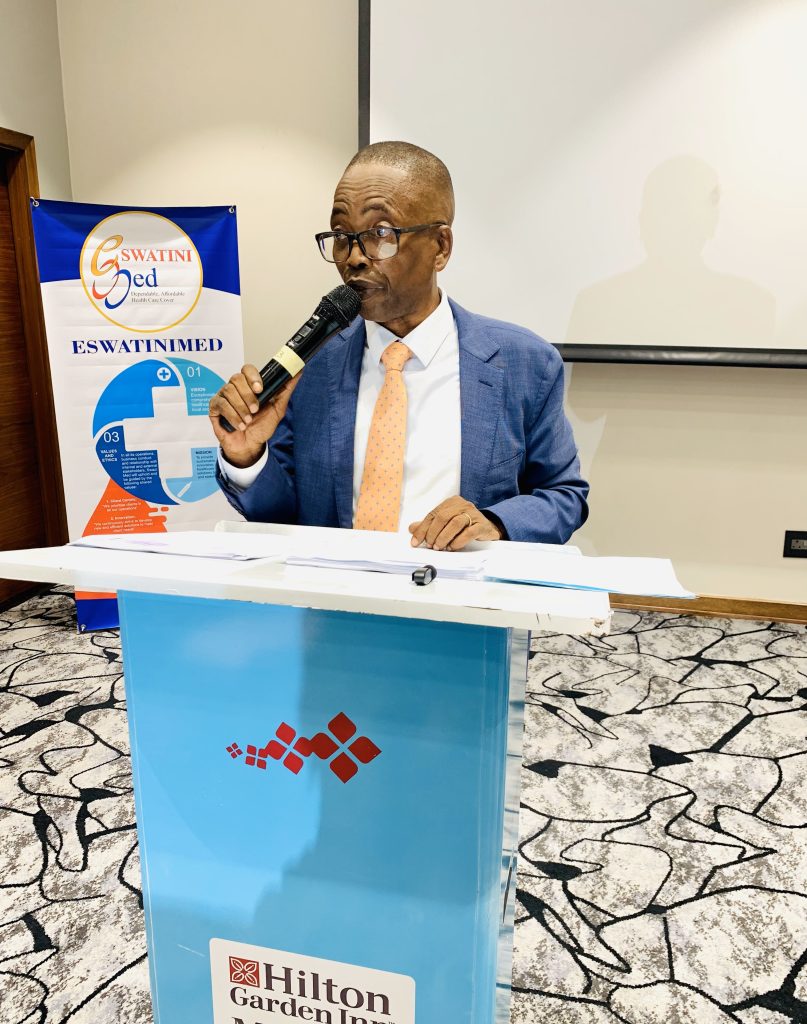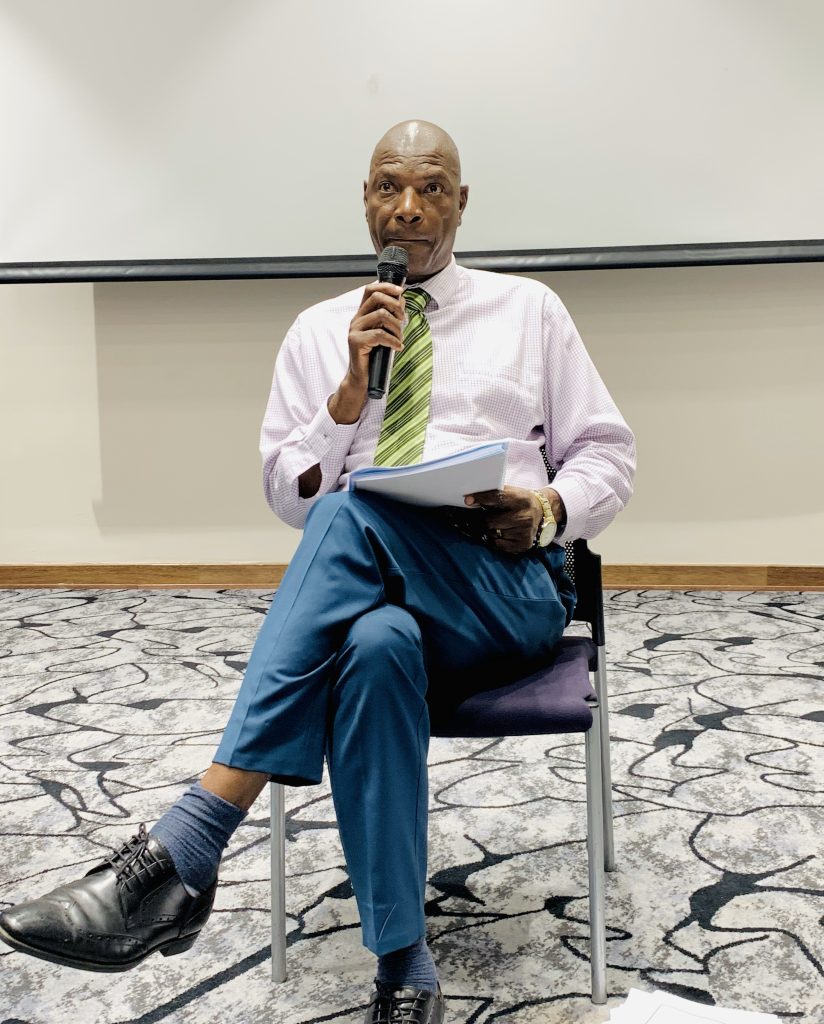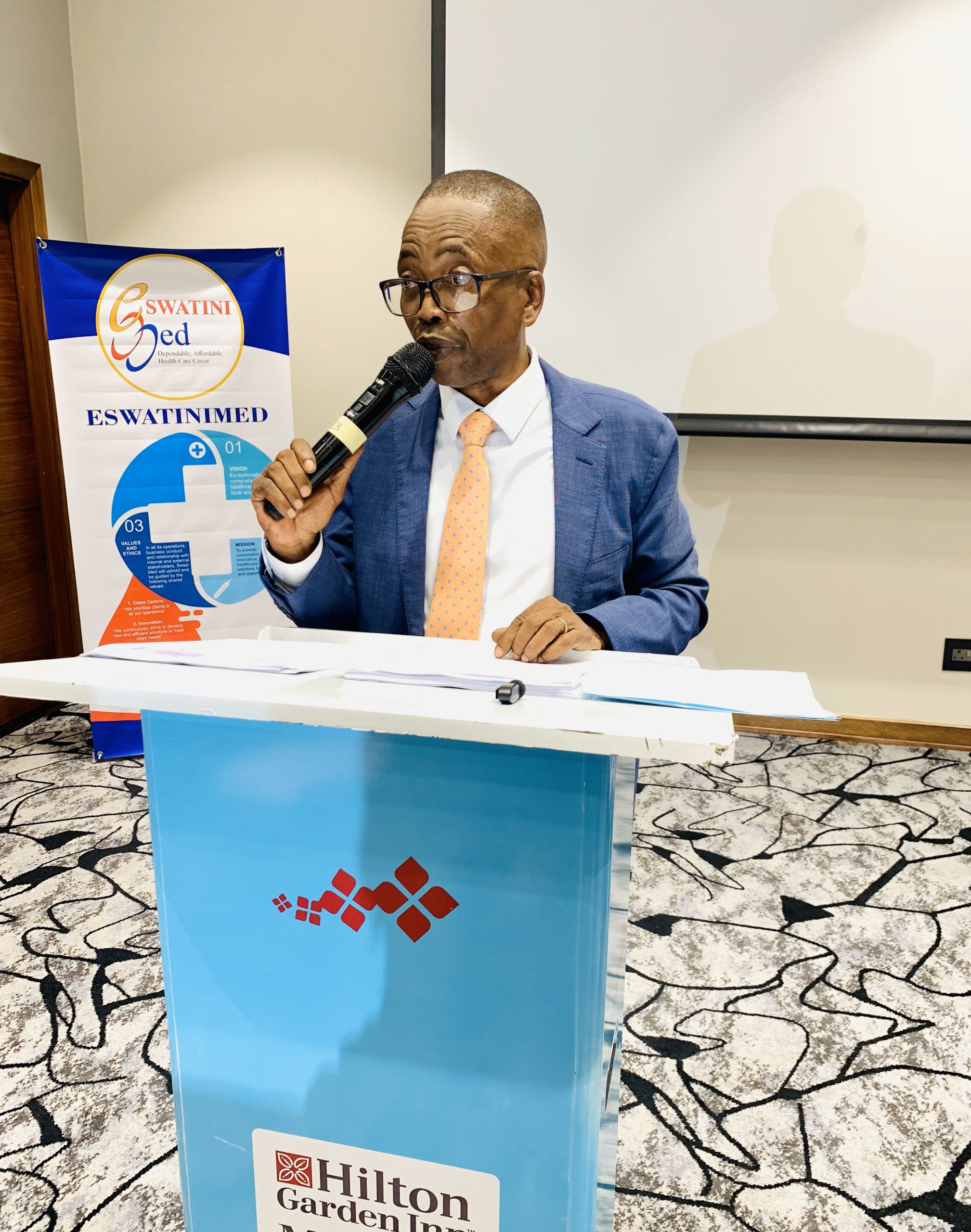
By Kwanele Dhladhla
Eswatini Medical Aid Fund (EswatiniMed), which has been shrouded in controversy in recent days, has continued to intentionally shun efforts by the Financial Services Regulatory Authority (FSRA) to ensure regulation of the scheme.
The latest instance where EswatiniMed shunned FSRA’s attempt to assure regulation followed the suspension of Principal Peter Simelane pending investigations and the removal of Chairman Sammy Dlamini based on a resolution by the Board of Directors.
In a statement issued by FSRA management on Friday, it was disclosed that following the suspension of Simelane and the removal of Dlamini, the regulatory body convened a supervisory meeting with EswatiniMed, inviting all parties involved.
However, it was reported that the removed Dlamini and Simelane did not attend, opting to call an Annual General Meeting (AGM) of the scheme.
“The Board and Executive Management updated FSRA on events that culminated in the suspension of the Principal Officer, and removal of the Chairman and the appointment of an Acting Principal Officer (Nokuthula Dlamini) and Interim Chairman (Bheki Maziya), and other operational matters. The FSRA acknowledges that the matter of the suspension of the Principal Officer and removal of the Board Chairperson is still pending in court and duly respects that,” reads the statement in part.
Court difiance
EswatiniMed’s Simelane and the removed chairman not only shunned the FSRA when they convened the AGM but went against a court order that had been issued by Judge Ticheme Dlamini, who had ruled that the AGM should not proceed. As a result of the alleged defiance of the court order, Business Eswatini (BE) filed an application for contempt of court.
The contempt of court hearing, which was due to be heard on Tuesday, was postponed to May 27 after the court was informed that a consensus had been reached during a meeting between BE and EswatiniMed that a forensic audit of the fund would be conducted by an independent South African firm.
It was mentioned that immediately after the parties (BE and EswatiniMed) agreed on a way forward, they entered a Memorandum of Understanding (MoU) outlining how key issues would be addressed during ongoing negotiations. These issues included the perception of mismanagement, concerns regarding the business model and corporate governance concerns within EswatiniMed.

When further explaining how EswatiniMed has shunned several regulation attempts, FSRA said over the past 12 months, they had had several supervisory engagements with EswatiniMed senior management on their operations, including various issues such as service number issuance, liquidity management, investment management and the scheme’s sustainability.
“The FSRA emphasis to the scheme was that EswatiniMed should strive towards voluntary or self-compliance notwithstanding the absence of a sector-specific legislation particularly because they are familiar with how entities such as theirs operate in other jurisdictions. The FSRA referred EswatiniMed to the South African scenario where medical aid schemes have recently been assigned to be supervised by the Prudential Authority, an equivalent of the FSRA in Eswatini,” the regulator explained.
Regulation Challenges
When unpacking what led to the challenge in regulating EswatiniMed, FSRA explained that EswatiniMed was one of their licensed Financial Services Providers (FSPs), categorized under the second schedule of the FSRA Act of 2010, as a medical aid scheme.
It was pointed out that the classification under the second schedule was simply a listing of all FSPs under the ambit or purview of the FSRA, and there was no further mention of medical aid schemes throughout the act.
In understanding the broader context, FSRA states that it was important to distinguish between health insurance and medical aid schemes.
It was mentioned that health insurance was often regulated under insurance laws, while medical aid schemes, like EswatiniMed, were regulated under health-specific legislation; for instance, in South Africa, similar schemes were regulated in terms of South Africa’s Medical Schemes Act.
RELATED: GOVT WEIGHS-IN ON ESWATINIMED DEBACLE
Health insurance, on the other hand, operates like traditional insurance (risk-based). FSRA said a key feature of a medical aid scheme was the member-based pooling of funds.
It was emphasised that even though this distinction might appear peculiar, the FSRA was compelled to regulate each FSP in accordance with the relevant secondary legislation and its business model.
“While insurance regulation is advanced, medical aid scheme regulation remains developing due to the absence of sector-specific legislation. The absence of sector-specific legislation for supervision has been a significant challenge in our regulatory framework. Despite this, the FSRA has taken proactive steps to oversee EswatiniMed while secondary legislation is being developed,” said FSRA.
Fine
In a separate court matter, Judge Titus Mlangeni on Monday imposed a fine of E100 000 on EswatiniMed for contempt of court. Simelane was not spared as he was sentenced to 60 days imprisonment for contempt of court. Half of the sentence was suspended for five years. Simelane was, however, given the option of a fine of E30 000 on the remainder of the sentence, expected to be paid from his pocket.
The sentence follows arguments that were made on Friday in the matter between Eswatini Development and Savings Bank (EswatiniBank) against Eswatini Med and Simelane.
EswatiniBank instituted contempt of court proceedings against Eswatini Med after the latter terminated the medical aid cover of 165 employees of the bank.

When termination was effected, EswatiniBank told the court that there was a court order interdicting the medical aid fund from proceeding to terminate the bank employees’ cover.
Simelane had been taken in by the police on Saturday and appeared before Judge Mlangeni, where he was remanded in custody until Monday.
Central Bank of Eswatini (CBE) Governor Phil Mnisi recently disclosed that the regulator had taken a stand to intervene in the embattled EswatiniMed debacle. He said the CBE would invoke provisions of the Financial Institutions Act to protect the movement of funds and contributions made by members since it was a scheme.
RELATED: Eswatini Bank cries foul after SwaziMed suspends employees’ medical aid
FSRA gives EswatiniMed forensic audit thumbs up, watching all developments closely. The Financial Services Regulatory Authority (FSRA) fully supports the move to conduct a forensic audit of the Eswatini Medical Aid Fund (EswatiniMed) on the condition that it should be independent.
Forensic Audit
This was communicated by the financial services regulator following an announcement that EswatiniMed had consented to a forensic audit of the fund being conducted by an independent South African firm.
The decision was reached during a meeting between Business Eswatini (BE) Vice-President (Trade and Commerce) Muzi Siyaya and EswatiniMed Board Chairman Sammy Dlamini, who was in the company of Principal Officer Peter Simelane.
The consensus, reached during the meeting between BE and EswatiniMed, culminated in the postponement of the court case where Simelane and Dlamini were due to appear for alleged contempt of court after they proceeded to convene an Annual General Meeting (AGM) despite a court order barring the meeting from being held. The court order had been issued by Judge Ticheme Dlamini.

“We fully support the planned forensic investigation into operational activities of the scheme provided that the exercise is independent and that only an entity with statutory powers to investigate can do so,” said FSRA in a statement issued on Friday.
Regarding the suspension of Principal Officer Simelane and the incumbent Chairman, FSRA said this was an internal governance decision that they were closely monitoring, particularly because the incumbents of both offices should satisfy ongoing fitness and probity standards of the FSRA.
On the enactment of sector-specific legislation, the FSRA disclosed that a draft medical aid schemes bill was ready to be taken through the structures.
“The FSRA remains committed to ensuring transparency and accountability in the resolution of this matter and doing its best within its remit to fast-track the progression in drafting the medical aid schemes bill. In addition, the FSRA continues to engage all the relevant stakeholders to ensure that all entities within its regulatory mandate are properly guided,” it was added.






